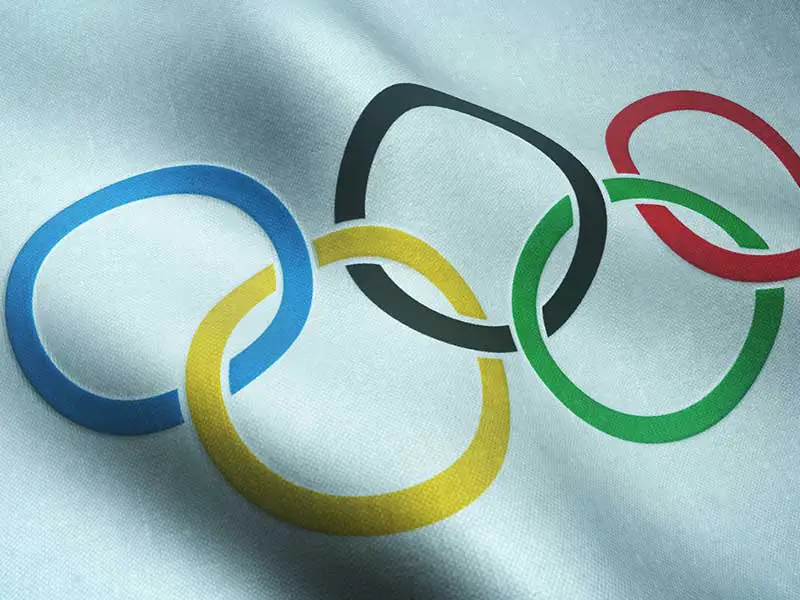Why does Olympic Soccer have an Age Limit?
The Olympics are one of the best sporting competitions in the world. Every four years, they engross the whole world. Many sports get their new Olympic champions, as the winning athletes get to call themselves the very best among the very best. But things are different in soccer.
Soccer at the Olympics is a rare sport where the best soccer players do not compete. That is due to an age limit for players allowed to participate in the Olympic soccer tournament. But why is that?
Olympic soccer has an age limit to ensure the FIFA World Cup remains the number one competition in the world of soccer. The limit helps them keep their hegemony, organizing the most important soccer tournament.
In this article, we will dive deeper into the reasons for an age limit in Olympic soccer and we’ll learn if there are any exceptions to this unusual rule.
Why does the Olympic soccer age limit exist?
The soccer tournament at the Olympics was the most significant soccer competition in the early 20th century. National teams had no international competitions where the best teams in the world could meet until the Olympic Games. Everything changed with the arrival of the FIFA World Cup after its inaugural tournament in 1930.
In the decades that ensued, FIFA made many changes to keep Olympic soccer at the perimeter of the sport. They achieved so by not letting it have the same importance as Olympic tournaments have in other sports.
Therefore, the Olympic soccer age limit exists so the FIFA World Cup doesn’t need to compete for attention with the Olympic tournament. If there were no age limit at the Olympics, a global competition in soccer would be happening every two years instead of the current four.
This straightforward rule has helped FIFA keep its World Cup as the greatest soccer competition.

What is the age limit for soccer at the Olympics?
The age limit for soccer at the Olympics is 23 years old. That is not just a random number picked for no reason. Organizers chose the age of 23 as the limit because of the European national teams. They qualify for the Olympics based on how they perform at the UEFA under-21 European championships.
These U21 competitions occur every two years. The players start the two-year cycle as 21-year-olds. Once the final tournament comes around in two years, all players are 23 or younger. At the time of the rule’s introduction, the European Championships were happening in the same year as the Olympics. That is why the limit was 23 – so all the players qualifying for the Olympics could get the chance to compete at them. It wouldn’t be much fun to help their national team qualify for the Olympics only to learn they are too old to participate.
Since the introduction of the age limit, the timings of the U21 Euros have changed. The tournaments are now occurring in odd years before and after the Olympics. But when did this age limit rule become a thing?
When was the age limit introduced at the Olympics?
The age limit for soccer at the Olympics was introduced in 1992. However, this decision took several decades to reach its final form, which remains intact.
Soccer debuted at the 1900 Olympics in Paris, yet FIFA recognizes the 1908 Olympics in London as the first-ever where the sport officially had its premiere. For the first two decades, FIFA backed soccer at the Olympics until they decided to create the World Cup. Women’s soccer had to wait until 1992 to become the regular sport in the Olympic program.
The 1992 Games in Barcelona were memorable for these two reasons – the men’s soccer tournament for the first time introduced the age limit, while women’s soccer got the chance at the biggest stage. But with (almost) every rule, there are exceptions.

Are there any exceptions to the age limit?
Yes, there are exceptions to the age limit rule at the Olympics. One exception has been in use since the 1996 Olympics in Atlanta, while the second exception happened on a one-time basis:
- Every team can have three players over 23 years of age
- Teams at the 2020 Olympics in Tokyo were under-24, not under-23.
Here is what these exceptions mean:
Every team can have 3 players older than 23
The main exception in Olympic soccer rules is that every team is allowed to have three players older than 23. That gives national teams a chance to bring in better and more experienced players. It is an opportunity for those players to feature at the Olympic Games, something they maybe wouldn’t have achieved before.
However, the main problem here can be that the Olympic soccer tournament is not a FIFA competition. It’s not part of the official FIFA calendar, which means clubs are not obliged to let the players leave for the Olympics. This is particularly important since the Olympic soccer tournament is usually held in July or August when the club season has already begun.
Tokyo Olympics introduced Under-24 sides
The Tokyo Olympics in 2021 were another exception, albeit an unexpected one. Soccer at the Olympics is usually for U23 teams, but as a result of the postponement of the Games, the rules for the soccer tournament changed as well.
The International Olympic Committee (IOC) and FIFA decided for the soccer tournament to consist of Under-24 teams. The Olympics in Tokyo was supposed to be held in the summer of 2020. However, the COVID-19 pandemic meant the organizers had to reschedule the Games for 12 months.
The IOC and FIFA wanted the players who qualified for the tournament to compete in it, too. Thus, they allowed players 24 or younger to play for their national teams. This rule change was only for the Tokyo Olympics. For every Olympics to follow, the age limit rule for the soccer tournament will revert to 23.
But how has the age limit rule impacted the soccer tournament at the Olympics?
What are the implications of the age limit?
FIFA’s decision to make Olympic soccer an Under-23 tournament was made to keep their World Cup the prime competition. But this rule had another implication for Olympic soccer.
The age limit rule has leveled the playing field for Olympic soccer. Usually, European and South American national teams have dominated world football, with only the countries from those two continents winning the World Cup. National teams from other continents never even reached the World Cup final.
Therefore, this age limit rule slightly leveled the field, giving nations from other continents more chances to win the medals at the Olympic soccer tournament. That resulted in Nigeria and Cameroon winning the gold medals in 1996 and 2000 respectively. Also, Nigeria won silver in 2008, while in 2012, Mexico and South Korea won the gold and bronze medal, respectively.
However, the age limit rule was not the only rulemaking Olympic soccer less important than the World Cup.

Were there other limits for Olympic soccer?
Yes, there were other limits for soccer at the Olympic Games. There were 3 different types of limitations put on Olympic soccer throughout history:
Soccer dropped from the Olympics
In 1932, soccer was dropped from the Olympics in Los Angeles, as FIFA wanted to promote their World Cup. When soccer returned to the Games, professionalism was already in full swing around the globe.
Only amateurs allowed
But at the Olympics, only amateur players had the chance to play, which made a big gap between the two global soccer tournaments.
That also gave a terrific opportunity for countries from the Soviet Bloc in Eastern Europe. In those countries, top athletes were state-sponsored, while retaining their status as amateurs. Therefore, they competed at the Olympics with their best possible sides, unlike the teams from other parts of the world. Between 1948 and 1980, Eastern European countries won 25 out of 34 Olympic medals in soccer.
1984 and 1988 limits for Europe and South America
The 1980 Olympics were the last where professional players were banned from soccer tournaments. That changed in 1984 in Los Angeles, when IOC and FIFA struck a deal that would allow professionals to compete. But not all of them.
FIFA still didn’t want to make the Olympics a rival to their World Cup. So they allowed all non-European and non-South American national teams to have their strongest squads at their disposal. Teams from UEFA and CONMEBOL were still limited in 1984.
In 1988, this also changed. FIFA and IOC added a paragraph stating all professional soccer players could compete at the Olympics only if they previously played less than 90 minutes in one single World Cup match. But as we learned, this lasted briefly. In 1992, FIFA and IOC introduced the age limit.
Do professional soccer players play in the Olympics?
Yes, professional soccer players play in the Olympics. They were not allowed until the 1980 Olympics in Moscow. Since then, there have been professional soccer players at the Olympics despite the limitations mentioned above.
Some still argue that state-sponsored athletes from the Soviet Bloc were professionals and competed as amateurs at the Olympics between 1948 and 1980, circumventing the rules. This controversy has followed the Olympics for decades. These days, professional soccer players regularly compete while the best ones also regularly miss the Olympics due to the age limit.

Does women’s soccer at the Olympics have an age limit?
No, there is no age limit in the women’s soccer tournament at the Olympics. There are a few differences between men’s and women’s soccer at the Olympic Games.
The main difference is that there is no age limit – all women’s soccer stars can feature at the Olympics no matter their age. That is because women’s soccer is widely considered not as popular as men’s soccer.
Women’s FIFA World Cup is growing in popularity with every new tournament, but it’s still far from the heights of men’s competition. That is why FIFA had no problem letting the IOC get the best soccer players for the Olympic tournament. The Olympics could only enhance the growth of women’s soccer on a global stage.
The first women’s soccer tournament took place at the 1996 Olympics in Atlanta, more than 90 years since men’s soccer’s debut.
Another difference exists. Because there is no age limit, women’s soccer has two of the biggest tournaments happening in consecutive years. They play the Women’s World Cup in the year before the Olympics, with more nations competing. For example, the next World Cup in women’s soccer will be in 2023, with the best teams competing again at the Olympics in 2024.
All of that is possible because the Olympics are part of the women’s FIFA calendar. That is why clubs have to release players to compete at the Olympics, which is not the case in men’s soccer.
Conclusion
The Olympic soccer has an age limit for FIFA to keep their World Cup as soccer’s prime competition. Many of the best soccer players in the world never compete at the Olympics because of the age limit. Only players 23 or under are allowed to play, which is why the most popular sport in the world doesn’t have the strongest competition at the Olympics.
If you prefer to watch the absolute best of the best, unfortunately, men’s Olympic soccer is not the best place to start. But if you want some fun and unexpected results, the Olympics are a great choice!
